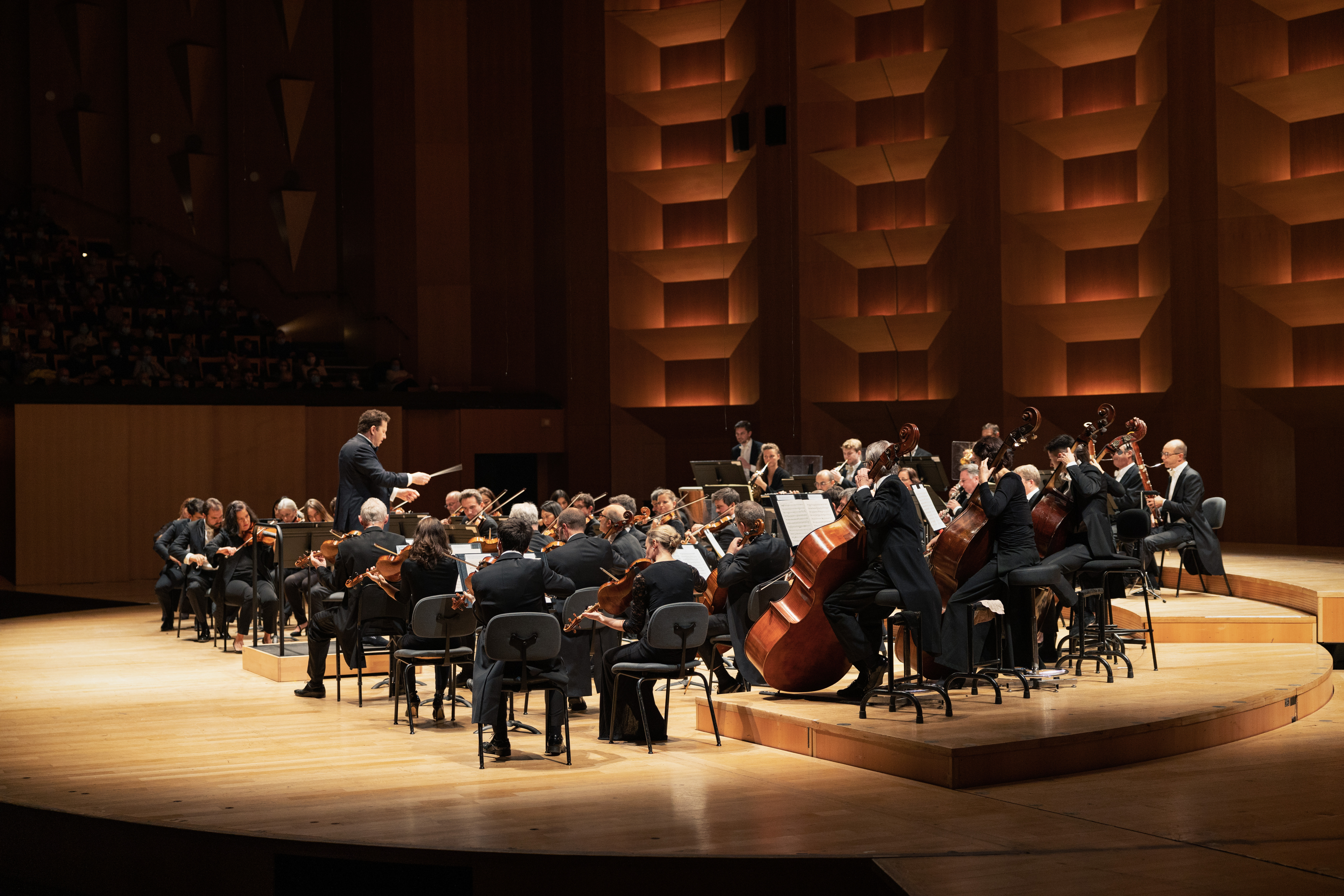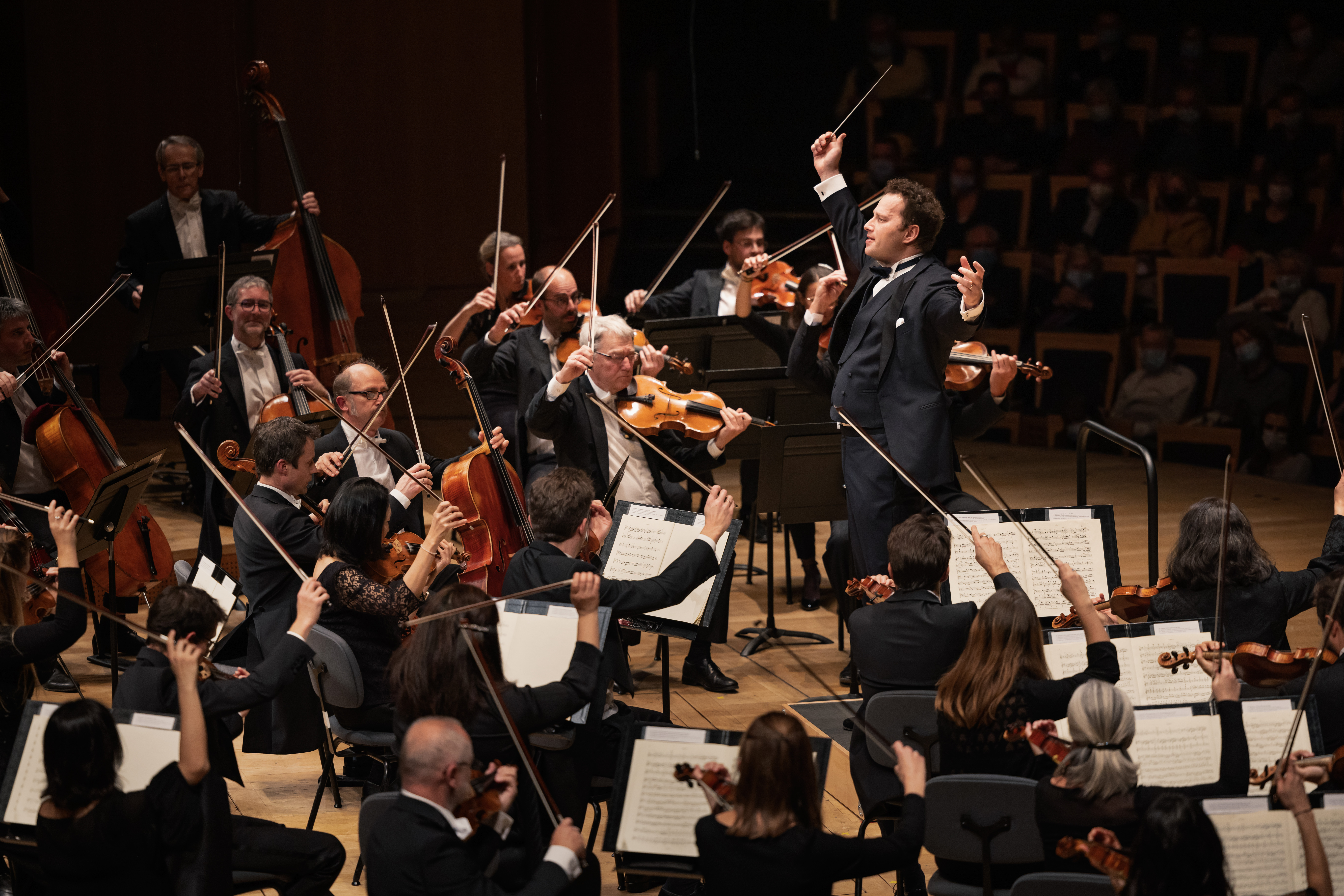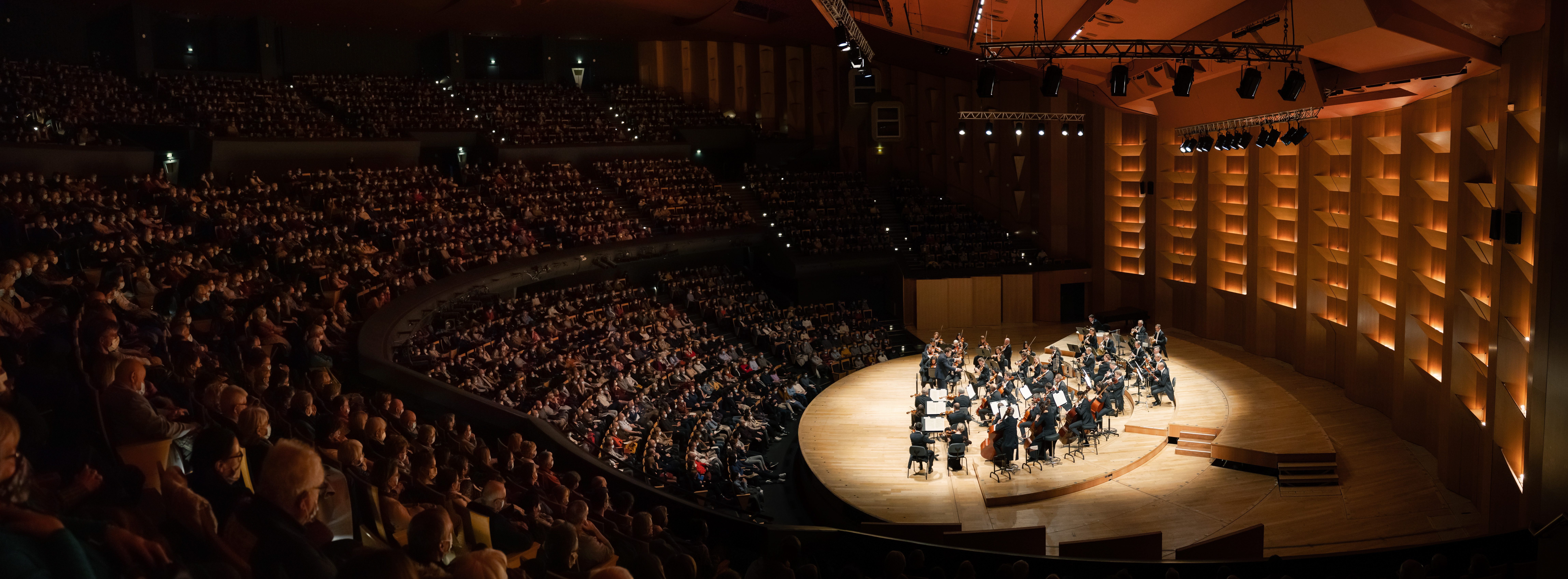Professional integration: finding one’s place in the orchestra
Joining a prestigious professional orchestra in France or abroad is the dream of many students of the two Conservatoires Nationaux Supérieurs Musique et Danse (CNSDM) in Lyon and Paris. These young people took already several steps on their way to becoming professional musicians. They didn’t count the hours spent working on their instrument in their bedrooms, music schools, and regional conservatories. The students who enrolled in the CNSDM in Lyon or Paris passed several competitive exams. To be recruited by an orchestra, they will have to pass a last one, maybe the most crucial of their life.

The job of a lifetime
“Few of these young students realize that they’re getting committed for 30 or 40 years, and what comes with that,” observes Aline Sam-Giao, general manager of the Auditorium-Orchestre national de Lyon. The manager of an orchestra of 104 musicians, Sam-Giao suggests, “It is possible that the new generations are evolving and won’t spend their whole lives at the orchestra, but for now, it is a reality: the instrumentalists leaving the Orchestre national de Lyon after a few years of career can be counted on the fingers of one hand.” Just like high-level athletes, retraining is difficult for orchestra musicians. That is why these young musicians must know what the career is about before they take the plunge.
For a few decades, the question of the employment of high-level musicians has been a concern to professionals and teachers. What is at stake isn’t just to find them a position in one of the 700 orchestras of the world. The goal is that throughout their whole career, they stay healthy, happy, and keep on fuelling their passion for their work. The Societe Generale corporate foundation chose professional integration as a major line of its patronage policy. The foundation is also one of the great patrons of classical music in France, which makes it an even more crucial matter.

Youth orchestras
There is a huge difference between playing alone in one’s living room and playing among 80 musicians. During their path as instrumentalists, young violinists, harpists, or percussionists only have a few occasions to play in such a big collective. Some of them had the chance to participate in the projects Demos or Orchestre à l’école (Orchestra at school), two introductions to music for preschools and middle schools actively supported by the Societe Generale corporate foundation. Young adults who want to make a living off their musicianship can ask to enrol in a youth orchestra.
Youth orchestras appeared in the 1970s. The Orchestre Français des Jeunes (French Youth Orchestra) that the Societe Generale corporate foundation supported from 1992 to 2007 was created in 1982 at the instigation of the Ministry of Culture and Communication to meet a specific need: training young instrumentalists to become professional orchestra musicians and complementing the teachings of the conservatories. Several temporary youth orchestras were formed on this template, such as the Orchestre des Jeunes de la Méditerrannée (Youth Orchestra of the Mediterranean) or the Jeune Orchestre Atlantique (Atlantic Youth Orchestra) in France.
In barely a few weeks, musicians aged 16-25 have to figure out what their life as professionals could be like, a heavy decision for young, sometimes even very young students. “So far, we knew how to handle this part of the training successfully,” explains Mathieu Ferey, director of the Lyon CNSDM. “By helping them become excellent musicians, we train them for the competitive exams they will need to pass to be recruited by an orchestra. When they graduate from the Conservatoire Supérieur, most of them will find a position. This is what we do for their competencies. Youth orchestras are necessary to get to know the trade through immersion, they’re student orchestras. It was important to us to give our students the opportunity to be in touch with professional orchestra musicians.”
It was important to us to give our students the opportunity to be in touch with professional orchestra musicians.
Mathieu Ferey, director of the Lyon CNSDM
An immersive master’s degree in Lyon
In light of these observations, the Lyon CNSDM and the Orchestre de Lyon teamed up to create a master’s degree for aspiring orchestra musicians. “This two-year Master’s degree tackles all the aspects of the profession, from the recruitment conditions to the prevention of health issues,” explains the director. “The bonds between the Lyon CNSMD and the Orchestre de Lyon (ONL) are natural,” goes on Aline Sam-Giao, “and often, students that are finishing their training at the Conservatoire enrol at the ONL. This series of concerts, for which they are paid as professionals, isn’t enough to comprehend the totality of the life of an orchestra: the programming, the relation to the public, the security rules, the cultural outreach initiatives in schools. The work of an orchestra musician evolved a lot. In Lyon, Paris, or Bordeaux, these professionals are attached to an area: they are involved in the city’s life and work with schools, retirement homes, etc. This master’s degree gives the student an overall vision of the profession and the tools they will need to flourish in their future job.”
The teachings of this master’s in Lyon are open to the students holding a French or foreign first cycle diploma who pass the entrance examination. The entrance exam of the first promotion took place on the 27th of September 2021 and was a success. It gave four students—Katharina Zeller, a horn player from Austria, Quentin Wattincourt, a French bass player, Earlene Massonneau, a French violinist, and Dora Koç, a Turkish violinist—the opportunity to enrol in this pilot training. During the two-year training, the students will be granted privileged access to some rehearsals, dress rehearsals, and concerts of the ONL.

Each of these four students will have his or her music stand (and section) in the orchestra and will be supervised by a “mentor” and four “co-mentors”, all tenured musicians of the ONL. “It is easier to rally five violinists of the Orchestra because there are many of them,” explains Mathieu Frey, “but for the integration of Katharina, who plays the horn, the whole horns section—seven musicians—needed to agree to go along with the project of the master’s.” The four students participated in a first day of discussion with French orchestra directors. They asked questions about the remuneration policies for the employees of an orchestra: these policies tend to change from one area and one orchestra to another.
The other theme tackled at length during this first day of discussion was programming. “They had the idea that the musicians of an orchestra are not involved in the programme, which is wrong,” says Aline Sam-Giao. “The members of the ONL elaborate the programme with the conductor and the artistic delegate through the dedicated services. Programming is crucial. Students will understand that it is the result of a balance between purely artistic goals, financial matters, and the interests of the public.»
They try to figure out how to involve the employees in the strategy. Why should cultural businesses be any different? The ambition of this master's is to give this youth the means to contribute to the orchestra of the future.
Aline Sam-Giao, general manager of the Auditorium-Orchestre national de Lyon.
The masters will also offer the opportunity to work with the audience manager at the Auditorium-Orchestre national de Lyon. The trainee musicians will be able to analyse the marketing data of the ONL, the results of qualitative surveys, and interviews with members of the audience. Then, they will have to set up a standard programme and defend it. “In the corporate world, they talk about agility, cross-sector approaches,” develops Aline Sam-Giao. “They try to figure out how to involve the employees in the strategy. Why should cultural businesses be any different? The ambition of this master's is to give this youth the means to contribute to the orchestra of the future.”
This pilot project supported by the Societe Generale corporate foundation since its inception aims to set the tone of the professional integration of musicians for the coming years. “Maybe some foreign students will come to Lyon for this masters, and would not have otherwise,” hope Aline Sam-Giao and Mathieu Ferey. “Maybe the students from this master’s will share their enthusiasm for the training they received at the Lyon CNSMD and the quality and ambition of the ONL in orchestras in France and abroad: hopefully, they will become the ambassadors of our system.”
